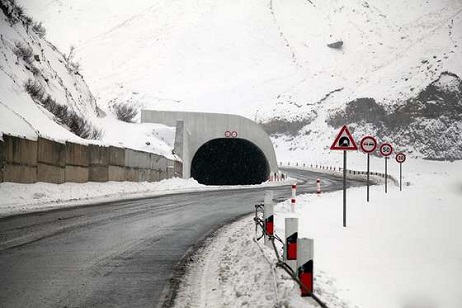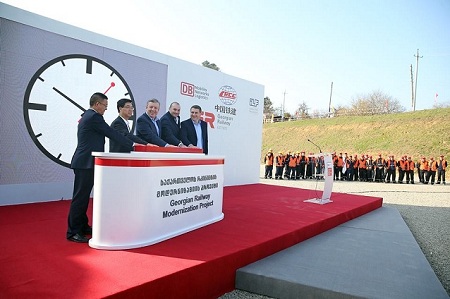Tunnel earmarked to connect Georgia with Russia

Negotiations to develop infrastructural projects on the road linking Georgia with Russia are on the horizon, representatives from the two countries confirmed.
A project to construct a tunnel at the Mleta-Kobi section of the Mtskheta-Kazbegi-Larsi road that connected Georgia with Russia’s border and other infrastructural projects were on the agenda for future discussion, Georgia’s special envoy of Georgian Prime Minister on Russian Issues Zurab Abashidze confirmed.
The news was separately confirmed by the Russian side. Yesterday Russian Deputy Foreign Minister Grigory Karasin told Georgian journalists in Moscow that a mutual agreement would soon be reached that would spark the beginning of numerous projects in infrastructure and energy sectors.
Karasin said since the collapse of the Soviet Union, there had been plans to construct roads and a tunnel that connected Russia with Georgia.
"These projects are still alive and some engineering work has already been done. But before the project can be implemented, both Russian and Georgian sides need to invest in the project. We are ready to smarten the road systems,” Karasin said.
He believed Armenia would be interested in the project as the Mtskheta-Kazbegi-Larsi highway was the only overland road that connected Armenia to Russia.
"We expect to create an alternative route which will be beneficial for our economic relations,” Karasin said.
Meanwhile, Abashidze, who expected to meet Karasin at a special meeting in Prague in October, said construction of a tunnel would be one of the main issues discussed at the upcoming meeting.
"During the winter period the Mleta-Kobi section is always covered with snow and consequently the road is mostly closed. The tunnel will enable the road to be open throughout the year,” Abashidze said.
The Georgian diplomat said the Mtskheta-Kazbegi-Larsi highway not only connected Georgia with Russia but it was a route that was extremely important for neighbouring countries. He believed this route was the "economic road” that connected Turkey with Russia and Armenia with Russia.
"[This] can be an international commercial project. Russian, Armenian and Turkish businesses have the opportunity to [be involved] in the project development,” Abashidze said.
 Tweet
Tweet  Share
Share
